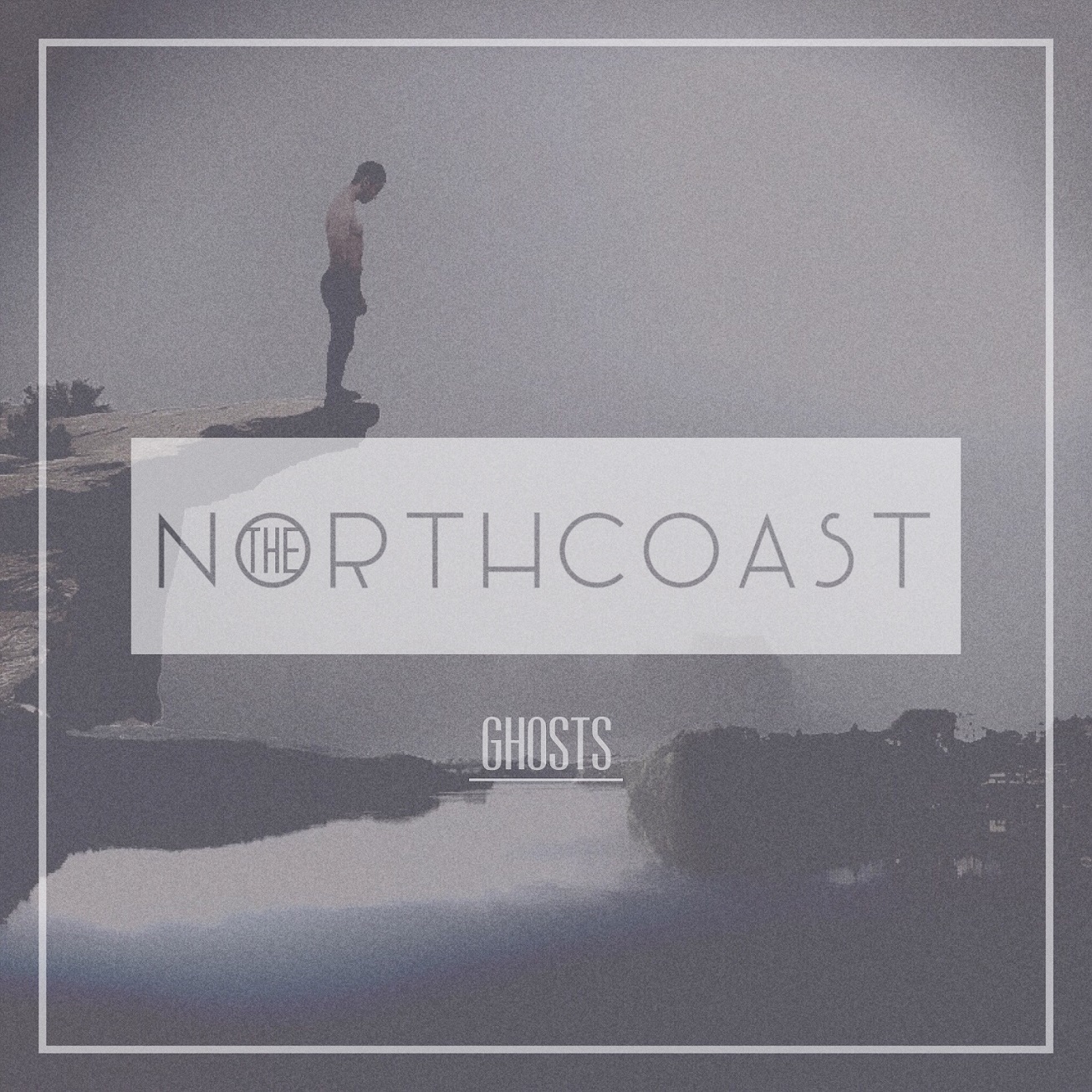Atmospheric and pensive, ‘Nostalgia’ by Feliz Final is formed around a recurring emotion that we can all relate to. Coinciding with the EP’s release, Nacho Cobián from the group breaks down the personal elements behind the tracks, as well as the process of replicating a state of mind through music.
Stream: ‘Nostalgia’ – Feliz Final
No matter how hard you try to forget someone, how much you push yourself, or how many times you tell yourself ‘I don’t want to keep thinking about you anymore,’ only time can heal you.
The feeling of nostalgia is like a language of its own, transcending vocabulary and generations.
It touches each and every one of us, sometimes with a sweet sadness and other times with an emotionally draining pain. It stems from relatable moments, whether it be a period of poignant happiness, a sweet relationship with someone, or the yearning to return some place that you weren’t ready to leave. Nostalgia is also blurry and aestheticized. It’s fragments of the past but selective fragments that don’t give the full picture, only what we felt the most. It’s for this reason that the concept and the emotion have a magical quality, vaguely intermingled with the fictional to put us in a dream-like state that tugs at our senses harder.

The debut EP by Spanish group Feliz Final, titled Nostalgia (released February 28), explores this emotion in all its softness and dreaminess.
Writing on their Instagram prior to the release, the group explained, “Nosotrxs encontramos la nostalgia en ser capaces de mirar al pasado con los ojos del presente. Poder deshacerte de todo el ruido emocional que sentías en ese instante que recuerdas y ser capaz de vivirlo desde el momento en el que estás. Porque en la nostalgia no recuerdas todo lo que había alrededor, tus problemas, tus miedos, tus preocupaciones, solo recuerdas esos instantes que te hace sentir.” Click here for a translation.
In other words, nostalgia is found in the ability to see the past through the eyes of the present and to be able to get rid of all the emotional noise that you were feeling in that moment. In nostalgia, you don’t remember everything that was around you, your problems, your fears, your worries, you only remember those moments that it makes you feel.
Entre tú y yo
Surge el invierno
Solo estamos juntos para evitar la soledad
Nuestra relación
Es un recuerdo
De todos los momentos que empezamos a disfrutar
Puede que hoy
Tenga que aceptar
Que no soy más que tu reflejo
– “Puede que hoy,” Feliz Final
Nostalgia is therefore an EP loaded with atmosphere, the notes of electro bedroom pop, R&B, et jazz whirling together alongside whispery vocals. “Puede que hoy,” which introduces the EP, has a build-up of pace which goes from slow to restless and desperate. Elements from Spanish flamenco music, such as claps, are integrated towards the end, while the lyrics explore the idea of distance and accepting the need to move on. The augmentation of atmosphere throughout is therefore like making sense of ourselves again amongst the noise (emotional and physical) that surrounds us.
In contrast, “Respira”, which concludes the EP, is an instrumental formed of delicate guitar riffs. It’s like resting our heads on our knees and staring at the clouds with a long sigh, emotionally drained and alone but guided by hopefulness and a reassuring sweetness. It follows “Te espero quí / Nostalgia” with its melancholic guitar and wistful vocals. The words ‘Te espero quí’ (‘I wait for you here’) are repeated longingly before disappearing into the haze.

“Olvidarme (de ti)” is powered by electronic elements that give the atmosphere a hint of darkness, as though battling with obstacles in the night. ‘Siento que me pierdo en un recuerdo/ Llorar y empezar de cero/ Trasnochar, murmurar/ Tu nombre en el silencio’ (‘I feel like I’m lost in a memory/ Cry and start from scratch/ Stay up late, murmur/ Your name in the silence’) go the lyrics before telling oneself to forget, forget the person who’s taking over the memories and tugging at the heart.
Based in Madrid, Feliz Final is formed of Blanca Mudel (vocals and guitar), Victor Venturini (lead guitar) Diego González (vocals and guitar) Rafa Jiménez (drums), Nacho Cobián (synth, vocals and bass) and Jacobo Cobián (designated graphic designer). Nostalgia launches the group, which has evolved since the debut single “A que ne sabes por qué” was released in 2021 (notably with the additional of Blanca on vocals).
Having centred their first collection of songs around a concept, it will be intriguing to see where Feliz Final lead us to next. After all, if nostalgia prevents us from moving forward because we’re tangled up in memories and emotions from the past and present, what happens when we finally take control of it? Or is it something that we can’t control, instead continuing to appear in our everyday life, often when we least expect it?
— —
:: stream/purchase Nostalgia here ::
:: connect with Feliz Final here ::
Watch: “Olvidarme (de ti)” – Feliz Final
:: Inside Nostalgia ::

— —
Puede que hoy
The starting point was to transmit the coldness and distance of realizing that you don’t want to be in a relationship with your partner anymore, discovering that you have become a reflection of the person you have in front of you. You become reactive to what the other person does: If they say I love you, you say ‘me too’, if they cuddle you, you cuddle them back. Nothing comes from you straight away, you are just mirroring the other person’s moves to please them. Deep down inside you feel like a liar to the other person, that you are not being honest with your feelings and you are drowning in guilt. You can no longer provide the same love the other person still has for you.
We tried to transmit this reflective behavior, which is like looking into a mirror, when the chorus comes. We sounds of the piano and each chord are like a reflection. As the chorus goes: ‘Puede que hoy/ Tenga que aceptar/ Que no soy más/ que tu reflejo.’ That literally translate to ‘Maybe today/ I should accept/ That I am no more/ Than your reflection.’ We also tried to keep the chorus as empty as we could, to express this distance and emptiness that you feel inside.
Olvidarme (de ti)
We wanted to show that, no matter how hard you try to forget someone, how much you push yourself, or how many times you tell yourself ‘I don’t want to keep thinking about you anymore’, only time can heal you. The more you try to forget something, the bigger it becomes. We should avoid saying ‘no, I don’t want to think about this, I don’t want to think about that’ and instead start accepting our feelings, our pain, and that it’s normal to feel that way. The more you cry today, the more you face your feelings and therefore the less you will cry tomorrow and so on.
We transmitted this with a videoclip which represents the idea of thinking about the other person as a ‘ghost’, that, it doesn’t matter how many times you try to kill it, it always comes back. That’s why the killings get more bizarre each time. But, equally, every time this ‘ghost’ comes back, we located the main character (the girl) closer to nature. We wanted to transmit the personal growth and development that emotional crises bring. So at the beginning she is in her bed when the idea/‘ghost’ appears. For the second time, when the idea ‘ghost’ of the other person comes, she has a representation of nature with a projected video of some lilies. Then the third time it comes, the main character is in front of a window. Finally, the last time it comes, she is surrounded by nature.
Te espero aquí / Nostalgia
Our main focus here was to display how your feelings change when you are healing your pain while forgetting another person. This pain evolves into a feeling of gratitude. You are able to see the good that your ex brought you and how much you developed while you were in that relationship, hoping the same for the other person from a distance.
‘Y tu/ Mirándome ahí/ Como la luna mira al mar en soledad’ translates to ‘And you/ Looking at me/ How the moon looks at the sea in solitude’ like watching each other from an untouchable distance. The song continue as follows:
De repente ya no estás
Todo esto sigue igual
Recorro el olvido de mi ser
Gracias a ti
Por primera vez sentí
Todas las cosas de lo hermoso que es vivir
Te espero aquí
which translates to ‘ Suddenly you’re not there anymore/ All this remains the same/ I walk through the forgetfulness of my being/ Thanks to you/ I felt for the first time/ All the things about how beautiful it is to live/ I’ll wait for you here.’ We wanted to express how you realize that the other person is not going be there anymore and and how your ex will be forgetting you. We wanted to transmit a sense of gratitude, that you will be waiting for your ex to be in the same emotional state as you are one day.
Respira
When words are gone, it is just music what is left. Once you are over your ex, you don’t have anything more to say. We created this song as a long sigh, like being tired and emotional, but also free from everything. You can continue from here with your life in peace, fully in peace.
— —
:: stream/purchase Nostalgia here ::
:: connect with Feliz Final here ::
— — — —

Connect to Feliz Final on
Facebook, Twitter, TikTok, Instagram
Discover new music on Atwood Magazine
© Paula Tudela
Nostalgia
an EP by Feliz Final


 © Paula Tudela
© Paula Tudela





